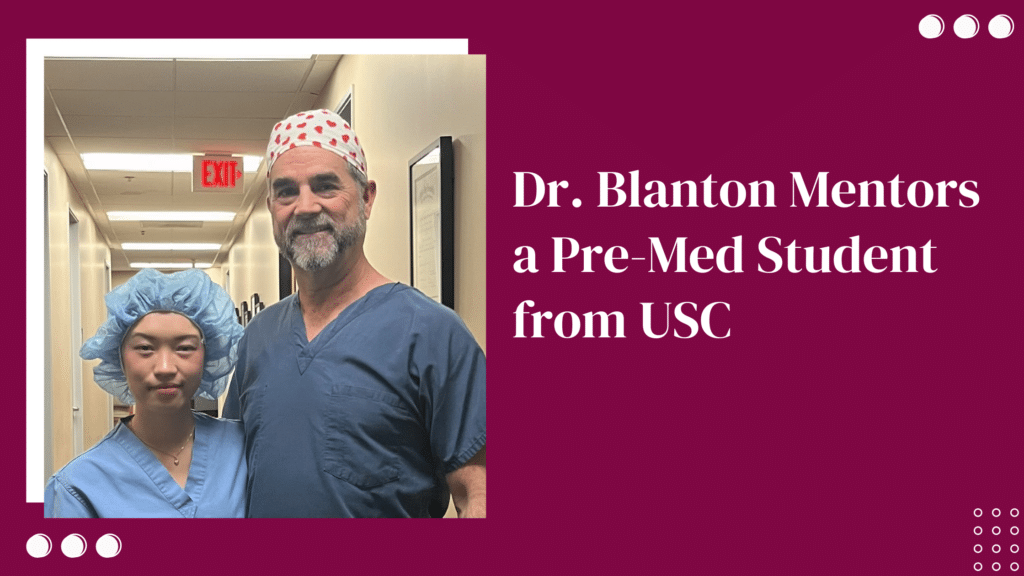
Inland Eye LASIK has a history working with optometry students for clinical experience, such as students from Loma Linda University and Western University. This summer, Jeslyn Nguyen, a University of Southern California pre-med student majoring in Neuroscience, reached out and requested a preceptorship opportunity with Dr. Christopher Blanton. Dr. Blanton appreciated the opportunity to stay connected with new developments and innovations in ophthalmology while mentoring Jeslyn.
“One of the most important elements in mentoring is that the mentor gets to stay in touch with new thinking in the field while simultaneously invigorating the career of the mentee in a mutually beneficial way. Both parties come away wiser and with fresh ideas. It was a tremendous pleasure having Jeslyn in our clinic.” – Dr. Christopher Blanton
This experience was truly enlightening for Jeslyn as she discussed below.
What made you select a preceptorship in ophthalmology?
I became interested in ophthalmology after taking a course in age-related diseases, where I was introduced to diabetic retinopathy, macular degeneration, and glaucoma, among other diseases of the eye. After watching a clip of a cataract surgery, I was impressed by the precision exercised by the surgeon. It was astounding to me that such a short procedure, performed on such a small region of the human body, could provide a patient with something as life-changing as vision restoration. I was then led to Dr. Blanton’s work, specializing in the cornea and refractive procedures, that truly upholds this noble cause of providing every patient with clarity of vision.
What interests you most in this field?
There are many reasons that compel me towards the specialty of ophthalmology. New standards of care are continually being created for the treatment of various eye pathologies, there is a great diversity of sub-specialties to fulfill any medical interest one might have, but ultimately, the most interesting part of this field, to me, is the immediacy of its results. During my preceptorship, patients, just out of surgery, would often comment on the vividness of their eyesight, shocked by the instantaneous and dramatic improvement when before they might not have been able to see the details of their own hand in front of them. Providing that essential and lifelong treatment is truly a modern miracle, and the most rewarding part of ophthalmology.
What did this experience provide you outside of clinical and technical skills?
Being mentored by Dr. Blanton has taught me the fundamentals of what it means to be a physician. In consultations, he uses clear and effective communication to help patients make the most informed decisions concerning their ocular health, aspiring for the highest quality of care. As an experienced surgeon, he is meticulous and detailed, utilizing the best instruments and techniques available after conducting thorough literature reviews and research. Dr. Blanton has taught me the importance of education, emphasizing a willingness to adjust your perspective to maximize growth. The field of medicine is always changing, and as a physician, you must be willing to change with it.
Dr. Blanton’s example holds me to a high standard for the kind of doctor I one day hope to be: compassionate, knowledgeable, and dedicated.
Any other comments or feedback?
Overall, Dr. Blanton has been an excellent mentor and resource, fueling my interest in medicine and particularly of ophthalmology. Through every step of the process, he has been incredibly encouraging and patient, never running out of things to teach me and never shying away from showing me all the possibilities that ophthalmology has to offer. I could not have asked for a better mentor than Dr. Blanton.









